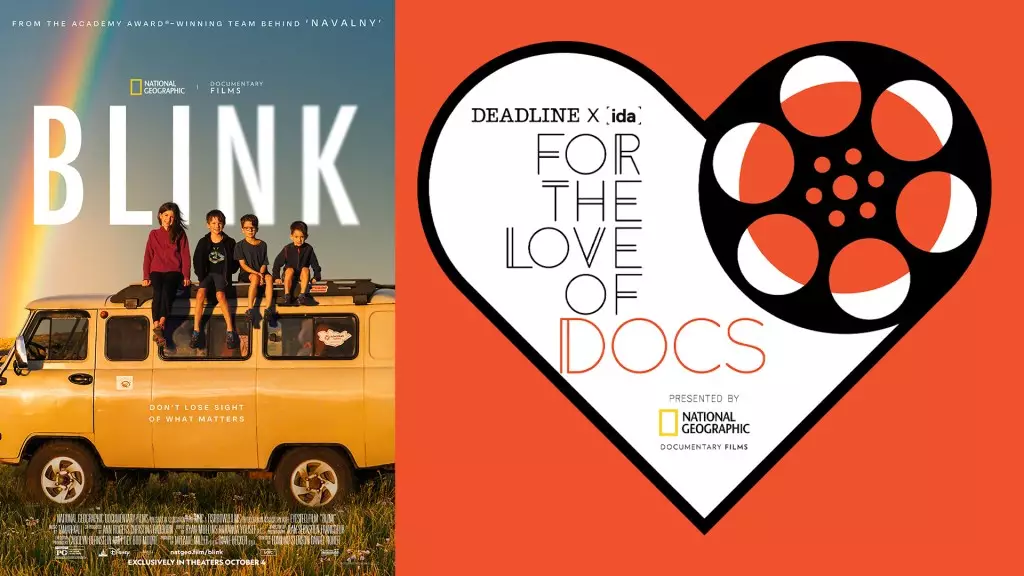In an ever-globalizing world, travel often serves as a mere escape or adventure for many. However, for Édith Lemay and Sébastien Pelletier, a family from Montreal, travel transcended the conventional meaning of exploration. With an impressive collection of passport stamps from countries like Namibia, Thailand, and Turkey, their voyages were forged from a poignant reality: three of their four children face impending blindness due to retinitis pigmentosa. This deeply moving narrative of a family facing unimaginable challenges is captured in the National Geographic documentary, *Blink*, directed by Edmund Stenson and acclaimed filmmaker Daniel Roher.
This documentary stands out not just for its content but for its emotional authenticity, mirroring the struggle and adventures experienced by this courageous family. In the face of adversity, Lemay and Pelletier embarked on a mission to create a reservoir of memories that their children could cherish and draw upon, ensuring that despite future darkness, their past would be vivid and rich.
The Lemay-Pelletier family approached their adventure with a mindset that was anything but conventional. Rather than enforcing their own travel aspirations, they entrusted their children with the responsibility of outlining their itinerary—essentially allowing their children to create a “bucket list” of experiences. Édith explained that they put no limits to their children’s imaginations, embracing whimsical suggestions and fostering a spirit of curiosity and exploration. Whether it was a wish to experience the world of Pokémon in Japan or merely enjoying camel juice in the Gobi Desert, each activity was rooted in the children’s interests.
This democratic approach to travel not only empowered the children but also cultivated resilience and creativity. By involving their children in planning the adventure, they nurtured a growth mindset, teaching them the value of active participation in their lives—an aspect often overshadowed in today’s parenting paradigms.
While the Lemay-Pelletier family embarked on their travels, the documentary’s production saw an equally dynamic collaboration behind the scenes. Stenson, with limited equipment to negotiate diverse terrains, made a deliberate choice to maintain a smaller crew, resulting in a more intimate portrayal of the family’s experiences. Roher, who was engrossed in promoting his own film while navigating the complexities of family life, entrusted much of the on-ground reporting to Stenson. This decision proved fortuitous, culminating in a synergy that honored the family’s story while developing a unique narrative perspective.
This collaborative spirit extends beyond just filmmaking; the filmmakers were inspired by the Lemay-Pelletier family’s parenting style. Roher highlighted the contrast between overprotective parenting and the autonomy given by Édith and Sébastien to their children. The parents, through their relaxed yet assertive approach, cultivated resilience and critical thinking in their children—an investment in their future capabilities.
*Blink* is marked by its ability to portray the innate disruptiveness and spontaneity of childhood, a quality that Stenson recognized as a critical asset during filming. The unfiltered moments captured through the lens offer insights into the unstructured joy and creativity inherent in being a child. Stenson illustrated how children, unencumbered by adult expectations, often navigate their unique worlds — a concept that resonates throughout the documentary.
This child-led narrative not only champions independence but also reflects a philosophy that values experiences over material possessions. As Mia, Léo, Colin, and Laurent traverse the globe, viewers encounter a myriad of emotional landscapes that demonstrate the joy of learning through exploration, emphasizing the importance of memories that no visual impairment can erase.
*Blink* serves as a poignant reminder of the resilience of the human spirit, especially within the lens of a family navigating impending challenges. As the documentary prepares for its premiere, it stands as a testament to the power of exploration, storytelling, and the bonds that unite us. More than just a narrative about potential loss, it is an uplifting story about embracing life fully, fostering independence, and creating experiences that last even when sight may fade.
As audiences anticipate its release on National Geographic and subsequent platforms, the Lemay-Pelletier family’s journey invites us to reconsider our approach to both parenting and adventure, prompting reflection on how we can empower future generations to seek out their own paths—even in a world shadowed by uncertainty.

